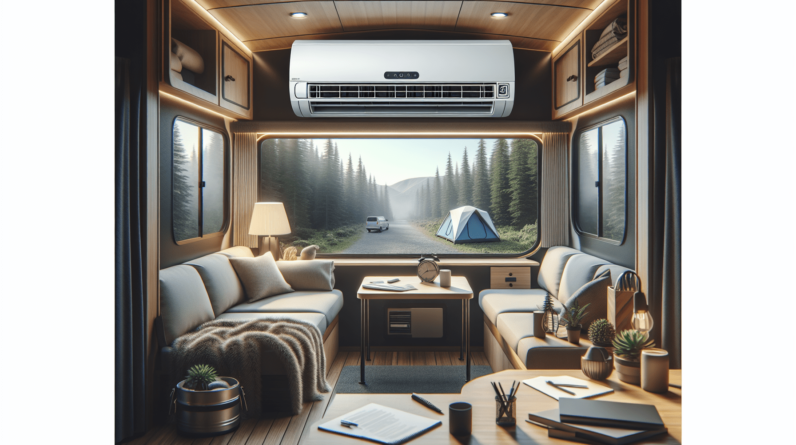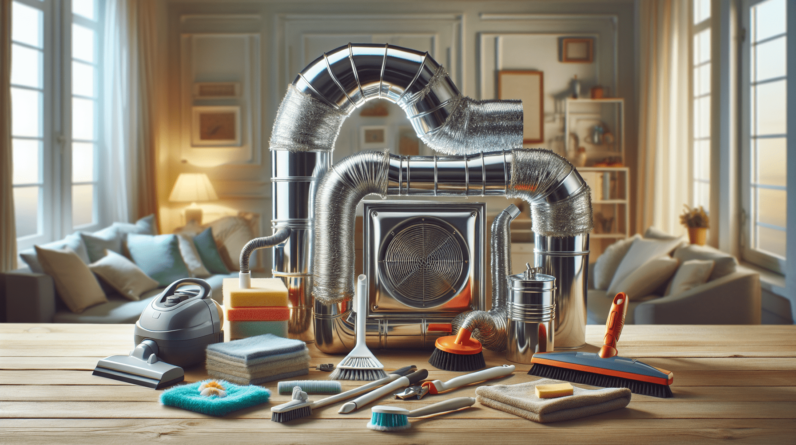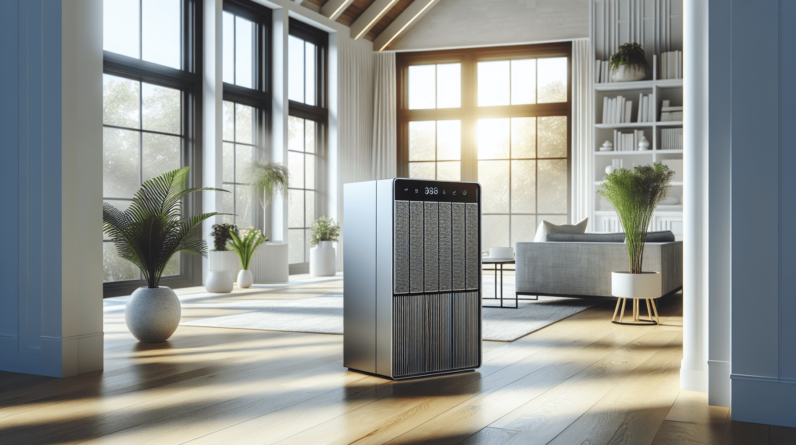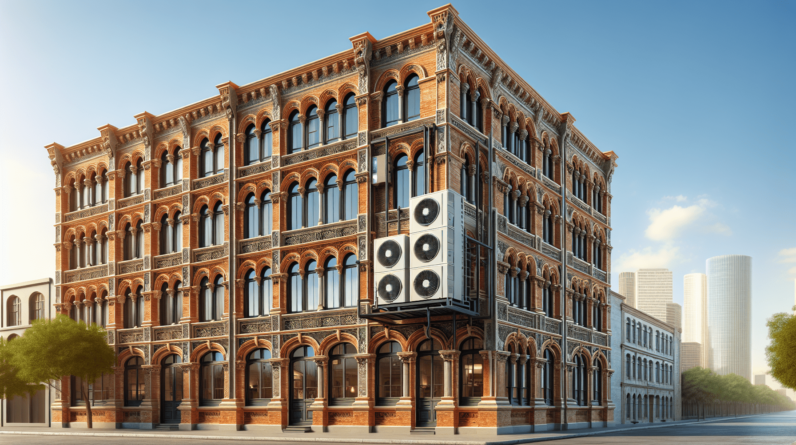
Have you ever found yourself sweating under the summer sun while camping, wishing for a breath of cool air? If so, it might be time to consider air conditioning units for your camper. These units can transform your camping experience from sweltering to refreshing, allowing you to enjoy the great outdoors without sacrificing comfort.
Why Air Conditioning is Essential for Campers
When you think of camping, you might picture starry nights, cozy campfires, and the thrill of adventure. However, those idyllic moments can quickly turn uncomfortable when the temperature rises. Air conditioning serves a significant purpose: it keeps the inside of your camper at a comfortable temperature, making it more enjoyable for you and your family.
Having a reliable air conditioning unit can also extend your camping season. You won’t have to avoid hot weather or escape to cooler locations—you’ll be comfortable no matter where you choose to camp.
Types of Air Conditioner Units for Campers
When considering air conditioning options for your camper, you’ll find several types available. Each type has its pros and cons, so it’s crucial to understand what suits your needs best.
Window Air Conditioners
Window units are one of the most popular choices for camper owners. They are relatively easy to install, are often less expensive than other options, and can cool a specific area effectively.
Advantages:
- Cost-effective, generally lower upfront costs
- Easy installation in most campers
- Effective cooling for small spaces
Disadvantages:
- May block outside views
- Limited cooling range
- Requires a window or opening for installation
Portable Air Conditioners
Portable air conditioners are another option, and they come with the added benefit of versatility. They can easily be moved around your camper as needed, which provides flexibility depending on where you are sitting or sleeping.
Advantages:
- Mobile and can be used in different locations
- No permanent installation required
- Can also dehumidify the air
Disadvantages:
- Generally more expensive than window units
- May require a vent to the outside
- Can take up floor space
Rooftop Air Conditioners
Rooftop units are often a preferred choice for larger campers, such as RVs. They are mounted on the roof, which saves valuable interior space.
Advantages:
- Space-efficient as they don’t take up interior space
- Can cool a large area effectively
- Often includes heating options for colder months
Disadvantages:
- Higher cost
- Requires professional installation
- May impact vehicle height compliance on roads
Split-System Air Conditioners
These units might be ideal if you have a larger camper or if you want to invest in a system that provides both heating and cooling.
Advantages:
- Quiet operation
- Efficient cooling and heating options
- Can effectively cool large spaces
Disadvantages:
- Generally the most expensive option
- Requires professional installation
- More complex system requiring maintenance

Factors to Consider When Choosing an Air Conditioner Unit
When deciding on the right air conditioner for your camper, several factors can influence your choice. Keeping these in mind can help ensure you make the best decision for your needs.
Size of the Camper
The size of your camper is one of the most important factors to consider. A unit that works well for a small travel trailer may not provide sufficient cooling for a larger fifth wheel. To help you choose, refer to cooling capacity measured in British Thermal Units (BTUs).
Cooling Capacity Guidelines:
| Camper Size | Recommended BTU |
|---|---|
| Up to 150 sq. ft. | 5,000 – 7,000 BTU |
| 150 – 300 sq. ft. | 7,000 – 10,000 BTU |
| 300 – 700 sq. ft. | 10,000 – 15,000 BTU |
Power Source
Most campers operate on either a 120-volt outlet or a generator. Before choosing an air conditioning unit, confirm what power source you’ll use. Portable units often have more flexibility regarding power sources than permanent ones.
Noise Level
Some air conditioning units can be quite noisy, which can disturb your peaceful camping experience. Look for models that have a lower decibel rating for quieter operation.
Energy Efficiency
With rising energy costs, investing in an energy-efficient air conditioner can be a wise choice. Look for units with a high Energy Efficiency Ratio (EER) rating. This will help you save on electricity costs and make your camping more sustainable.
Budget
Air conditioner units for campers come in a range of prices. Determine how much you are willing to invest before you start looking. Generally, the more you spend, the better the cooling efficiency and features you’ll receive.
Installation Options for Camper Air Conditioners
Once you’ve selected the type of air conditioning unit that best suits your needs, it’s time to think about installation.
DIY Installation
If you’re handy and have a bit of experience with tools, DIY installation may save you money. Many window and portable units come with detailed instructions that make it simple to set up without professional help.
Professional Installation
If you go for rooftop or split-system air conditioners, consider hiring a professional. They can ensure the unit is securely placed and optimized for your camper, which could save you headaches later on.
Existing Openings
Before installation, check if your camper already has openings. Many travel trailers are prepped for air conditioning with existing cutouts or wiring, making installation easier.

Maintenance Tips for Your Air Conditioning Unit
Keeping your air conditioning unit well-maintained will ensure it functions effectively throughout your camping adventures. Regular maintenance can extend the lifespan of your unit and help it run more efficiently.
Regular Cleaning
Just like at home, your air conditioner needs to be cleaned regularly. Remove any dust and debris that may accumulate in the filters, coils, or vents.
Check Refrigerant Levels
Low refrigerant levels can hinder your unit’s cooling efficiency. Make it a habit to check these levels before heading out on a camping trip.
Inspect for Leaks
Periodically inspect your air conditioning unit for any signs of leaks. If you notice reduced cooling efficiency, a leak could be a culprit.
Annual Servicing
If you have a more intricate air conditioning system, schedule annual servicing from a professional. They can ensure everything is in good working order and may catch issues before they become significant problems.
Camping Off the Grid with an Air Conditioner
Planning to camp away from traditional campgrounds? You can still enjoy air conditioning while off the grid. Here are some options to consider:
Solar-Powered Air Conditioners
If you enjoy eco-friendly camping, a solar-powered air conditioner can be an excellent choice. These units harness the sun’s energy, making them perfect for remote locations.
Advantages:
- Environmentally friendly
- Can run independently of electrical sources
- Low running costs after setup
Disadvantages:
- Higher initial investment
- Might require battery storage for efficiency
- Performance can decrease on cloudy days
Generators
Using a generator to power your air conditioning unit is another way to remain cool while camping off the grid. Ensure you choose a generator that is powerful enough to support your air conditioning unit.
Considerations for Generators:
- Calculate the total wattage required for your air conditioner and any other appliances you plan to use.
- Select a quiet generator to minimize sound disruption.
- Always operate generators outside to avoid carbon monoxide buildup.
Running an Air Conditioner While Camping: Tips and Tricks
Once you have your air conditioning set up, consider these practical tips to enhance your experience:
Use the Shade
To maximize your air conditioner’s efficiency, park your camper in shaded areas whenever possible. This helps reduce the heat that your unit has to contend with.
Insulate Your Camper
Adding insulation can help maintain cooler temperatures inside your camper. Consider using reflective window coverings to minimize the heat entering through the windows.
Set a Timer
If your unit has a timer feature, utilize it! Set your air conditioning to turn on shortly before you return to your camper after outdoor activities so it’s cool when you get back.
Don’t Overuse
While it can be tempting to crank up the air conditioning when you feel hot, avoid setting the thermostat too low. This will place unnecessary strain on the unit and increase energy usage. Instead, find a comfortable yet energy-efficient setting.
Conclusion
Investing in an air conditioning unit for your camper can significantly enhance your camping adventures, providing comfort during sizzling summer days. With various types available, careful consideration of your camper size, preferences, and budget will lead to the best decision.
Maintain your unit regularly, and don’t forget to maximize its efficiency during your trips. Soon enough, you’ll be enjoying all the joys of camping while staying cool and comfortable—even in the heat!
Now that you’ve learned about air conditioner units for campers, what are your thoughts? Are you ready to upgrade your camping experience?








